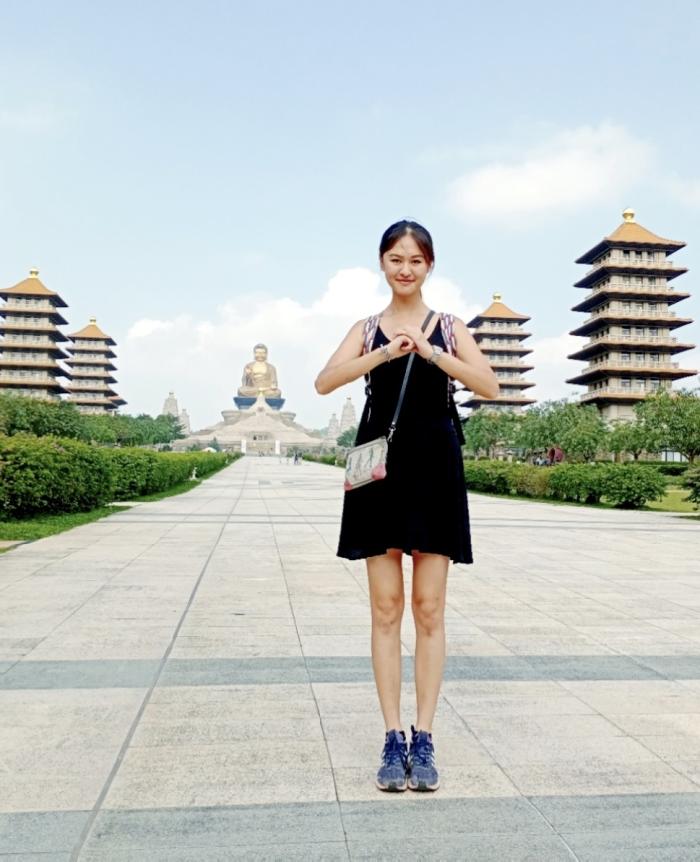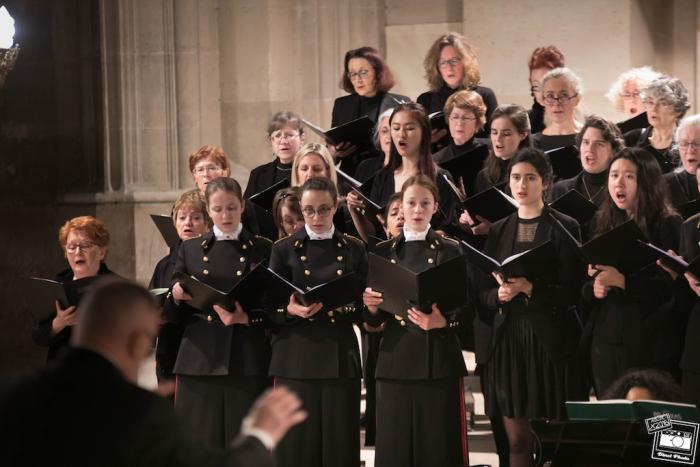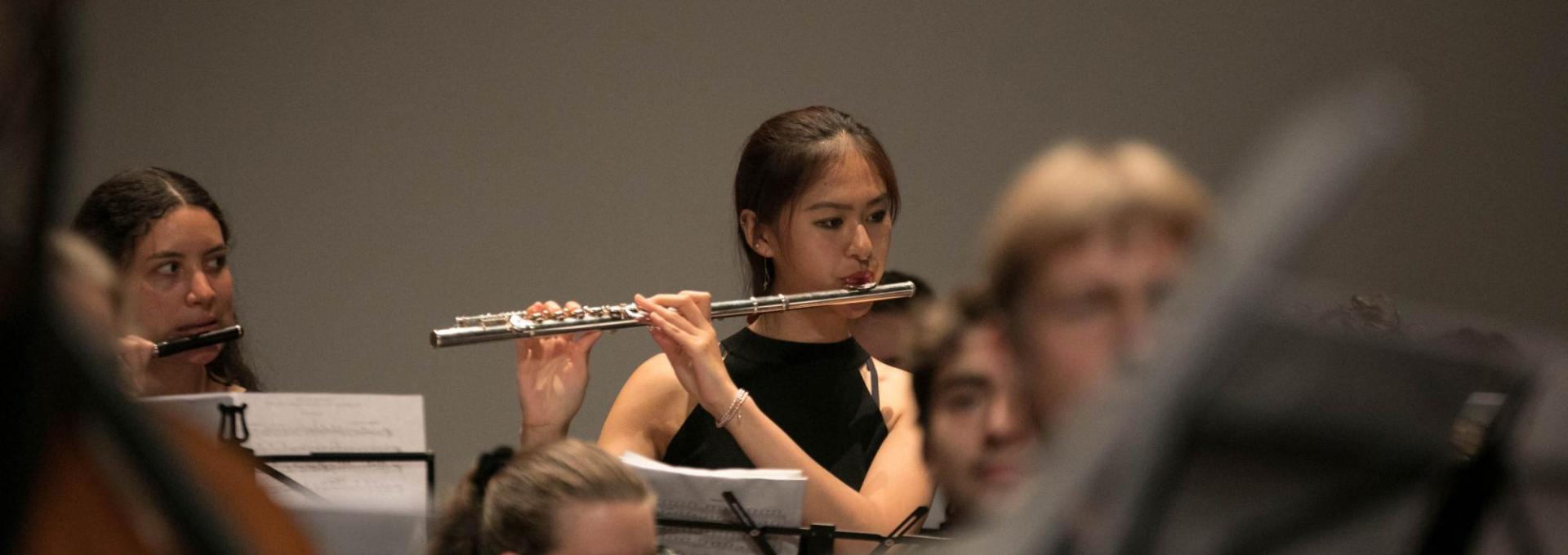This article is part of the "Women in science" series, which shows the careers of female students at École Polytechnique
Kayo is a student at the Bachelor program, which she joined in 2017. She is currently in Taïwan for an exchange semester at the National Chiao Tung University. She told us about her experience at École Polytechnique and shared her opinion about the status of Women in Science.

Why did you choose to study at École Polytechnique?
I already knew about the school’s incontestable reputation as the best engineering school in France. I fondly remember my time at math competitions where I was surrounded by like-minded, passionate students who I constantly learned from. I thought I would find this community again by studying in a campus surrounded by the nation’s most brilliant students. Several scientists I looked up to are also alumni or faculty of the school, so I knew studying at Polytechnique would give me excellent instruction and wonderful research opportunities.
What are the main reasons you have chosen the Bachelor program?
During my last year of high school, I had no idea what I wanted to do next. My physics teacher told me about École Polytechnique’s Bachelor program. I was immediately attracted to the Bachelor program’s multidisciplinary curriculum and the focus on mathematics to approach other scientific fields. I also greatly appreciate the rigorous teaching method for high-level mathematics in France, but I hoped to study in an international setting that would open my mind and my doors to opportunities worldwide. This is why the international Bachelor program was a great fit for me.
Could you tell us more about your exchange semester in Taïwan?
I am spending a semester abroad at National Chiao Tung University, a top research university in Taiwan. I chose to come here to practice my Mandarin which I started learning in high school and to experience life in a foreign country. During class hours, I am following many graduate level courses related to machine learning where I get to undertake lots of fun and fascinating projects! After class, I joined student clubs where I get to meet Taiwanese friends with the same interests as me (such as piano and Buddhism), or learn about Chinese culture (such as calligraphy, Chinese martial arts, and erhu, a traditional Chinese instrument). On weekends, I like to go hiking in one of the many beautiful mountains on this island country.
What about your status of entrepreneur?
I became an auto-entrepreneur at the end of my summer internship this year. During my internship at Illuin Technology, I started researching “unsupervised question answering”. In question answering, the model learns to answer questions given by the user. This discipline requires to get lots of data which are hard to obtain. By the end of my internship, my research produced lots of encouraging results that even surpassed performances from existing research. My supervisors and I therefore agreed I will continue working with Illuin while I am in Taiwan as an auto-entrepreneur until I finish my research and publish my paper.
We talk a lot today about women and their position in the workplace among other matters.
In your opinion, how does Ecole Polytechnique support Women regarding the science field?
For me, I best witnessed École Polytechnique’s strive to include and support women in the scientific field through my involvement with the Pôle Diversité et Réussite (PDR). The PDR is a service offered by the school to promote diversity and equal opportunities for underprivileged social backgrounds, handicaps and gender. Notably, the PDR organizes projects to encourage girls to study sciences in preparatory classes and take the Grandes Écoles concours, and undertakes sensitization on campus to ensure the safety of enrolled female students.
Last year, I participated in a task force to combat behaviours of sexual harassment, discrimination and violence (HDVS) at school. I worked with staff of the PDR, the military of the school, and students of other programs, to identify behaviours that compromises the comfort and safety of female students, find solutions to prevent such situations and ways to educate students. It was inspiring to see the importance the school places for the wellbeing of women. I believe the first step to support women in science is to undo the effect of harmful stereotypes by giving girls confidence to pursue science, and to ensure these girls have a safe environment to work in, in which they are respected.
Do you have any role model of Women in Science?
Growing up, Marie Curie was the only female scientist I knew but her sole figure was enough to inspire me as a little girl. I relished in the little connection I had with her, that my birthday is three days before hers, I admired her resilience against strong sexual discrimination at her time and I desired to become more like her, as a scientist and as a strong female figure. She has always been the reminder that women can succeed in science too if she was able to win two Nobel prizes in the 19-20th century, my womanhood is no barrier to my success in my scientific studies!
In your opinion, why are women less represented in Science? What are the main challenges they are facing today?
I remember in middle school, a lot of girls in my class liked science in math. But when it was time to choose our specialisation in high school, few of them chose the scientific track. A lot of them said their grades in science weren’t that great so they were not cut out for science. I also noticed that many boys chose the scientific track, and changed later on if they found it too hard. I later read that girls are more likely to have a “fixed” mindset where intelligence is static, while others have a “growth” mindset where intelligence is developed through challenges. I think this comes from the stereotype that surrounds us almost unconsciously since birth, our environment constantly implies we are not suited to science which is why a little obstacle is enough to convince us we are not smart enough to do science. With increased initiatives to eliminate these stereotypes as well as more visibility of female role models in science, I am optimistic that we can give young girls the confidence they need.
Another challenge women have to face is the unequal pay between men and women. My mother used to be a mathematician too, I think she played a big part in the passion I have for science today. She is no doubt very intelligent and passionate about science, but she quit her job when I was born. She says it is her duty as a mother to take care of me, while my dad has a higher paying job. The gender pay gap is still prevalent professions of science, as well as the social expectation of women to do housework and child caring. I think this is a big contributing factor to why we see few women with scientific careers.
If Marie Curie was able to win two Nobel prizes in the 19-20th century, my womanhood is no barrier to my success in my scientific studies!

This article is part of the "Women in science" series, which shows the careers of female students at École Polytechnique. At École Polytechnique, we strive to promote gender equality and encourage women to get in science. In order to encourage and support talented female students, École Polytechnique Foundation has created the "Women in Science" scholarship.
